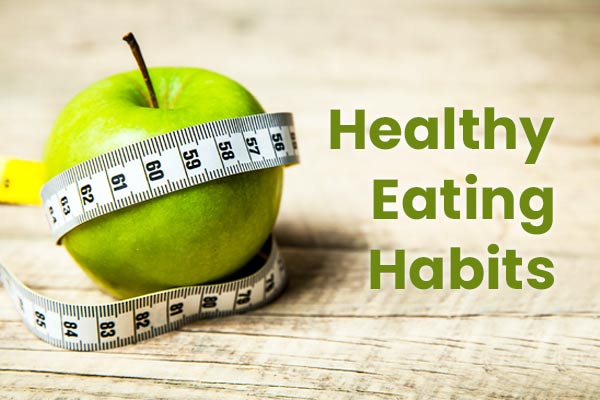Introduction:
What is healthy eating habits?” encompasses a holistic approach to nutrition that focuses on nourishing the body with nutrient-dense foods while fostering mindful eating practices.
Embark on a transformative journey towards a healthier, happier you through the power of healthy eating habits. In today’s fast-paced world, where health takes center stage amidst the hustle and bustle of daily life, understanding the pivotal role of nutrition in achieving physical fitness and overall well-being is paramount. This comprehensive guide promises to be your compass, guiding you through the maze of dietary choices and offering actionable insights suitable for individuals of all ages who are fervently striving for better health. Whether you’re seeking to shed excess weight, build muscle, enhance athletic performance, or simply maintain a vibrant and energetic lifestyle, what is healthy eating habits are universal and applicable to all. Let’s embark together on this journey towards optimal health and well-being, where every bite you take brings you closer to your wellness goals.
What Are the Fundamentals of Healthy Eating?
Healthy Eating
How do I change my eating habits? is a common question many individuals ask when seeking to improve their diet and overall health. Start Eating Healthy plan encompasses more than just the absence of unhealthy foods. It’s about nourishing your body with the right nutrients to support optimal function and vitality. By prioritizing nutrient-dense foods, you can fuel your body for peak performance and longevity.
Balanced Nutrition
The cornerstone of what is healthy eating habits lies in achieving a balance of essential nutrients. Carbohydrates provide energy, proteins support muscle repair and growth, fats aid in nutrient absorption, and vitamins and minerals play crucial roles in various bodily functions.
What Is Healthy Eating Habits?: 7 Healthy Eating Habits
High-functioning autism eating habits refer to a set of behaviors and practices that prioritize the consumption of nutritious foods to support overall health and well-being. These habits involve making informed dietary choices that provide essential nutrients such as carbohydrates, proteins, fats, vitamins, and minerals in the right proportions.
Healthy eating habits also involve:
Balanced Nutrition:
This involves ensuring that your meals incorporate a diverse range of food groups, each providing essential nutrients crucial for your body’s optimal functioning. Fruits and vegetables offer vitamins, minerals, and antioxidants vital for health. Whole grains provide fiber and sustained energy, while lean proteins aid in muscle repair and growth. Healthy fats, such as those found in avocados and nuts, support brain function and hormone production. Including these components in your meals ensures that you receive a well-rounded array of nutrients necessary for overall health and well-being.
Portion Control:
Portion control is about being mindful of how much food you consume at each meal or snack to avoid overeating. It involves understanding appropriate serving sizes and listening to your body’s hunger and fullness cues. By practicing portion control, you can maintain a healthy weight, prevent feelings of discomfort from overeating, and promote better digestion. It’s important to note that portion control doesn’t mean deprivation; rather, it encourages balance and moderation in your eating habits.
Mindful Eating:
Mindful eating involves being present and attentive to the experience of eating, including the taste, texture, and sensations of food. It encourages you to eat slowly, savoring each bite, and paying attention to your body’s hunger and fullness signals. By practicing mindful eating, you can develop a healthier relationship with food, reduce emotional eating, and make more conscious food choices. This approach can also help prevent overindulgence and promote greater satisfaction with meals.
Meal Planning:
Meal planning involves preparing meals ahead of time, often at the beginning of the week, to ensure that you have nutritious options available when hunger strikes. It helps you make healthier choices by reducing reliance on fast food or processed meals, which may be higher in calories, sodium, and unhealthy fats. Meal planning allows you to incorporate a variety of nutrient-rich foods into your diet, optimize your grocery shopping, and save time and money in the long run. Additionally, it can help you stick to your dietary goals and avoid impulsive food choices.
Hydration:
Staying adequately hydrated is essential for overall health and well-being. Water plays a crucial role in regulating body temperature, lubricating joints, and transporting nutrients throughout the body. In addition to water, hydrating beverages such as herbal teas, infused water, and low-sugar beverages can contribute to your daily fluid intake. It’s important to drink fluids consistently throughout the day, especially during physical activity or in hot weather, to prevent dehydration and support optimal bodily functions.
Cook at Home:
Prepare meals at home whenever possible, as it allows you to have control over ingredients and cooking methods. Cooking at home often results in healthier meals with less added salt, sugar, and unhealthy fats compared to eating out or consuming pre-packaged foods.
Flexibility and Moderation:
Flexibility and moderation are key principles of what is healthy eating habits that emphasize balance and sustainability. They allow for the enjoyment of a wide variety of foods while maintaining overall health and well-being. Flexibility means being open to occasional indulgences or deviations from your usual eating pattern without guilt or judgment. Moderation involves consuming all foods in appropriate portions, including those that may be higher in calories or less nutrient-dense. By practicing flexibility and moderation, you can enjoy a satisfying and varied diet while still meeting your nutritional needs and long-term health goals.
Overall, healthy eating habits contribute to improved physical health, energy levels, mood, and overall quality of life. They are an essential component of a balanced lifestyle and play a crucial role in preventing chronic diseases and promoting longevity.
What are 4 Healthy Eating Habits Recommended By the New Food Guide?
The new food guide typically recommends four healthy eating habits to promote overall well-being and optimal nutrition. These habits are designed to help individuals make informed dietary choices and adopt sustainable eating patterns. They are:
Choose Plenty of Vegetables and Fruits:
The new food guide emphasizes the importance of consuming a variety of colorful fruits and vegetables as part of a healthy diet. These foods are rich in vitamins, minerals, fiber, and antioxidants, which support overall health and reduce the risk of chronic diseases such as heart disease, diabetes, and certain cancers.
Eat Protein Foods:
Protein is essential for muscle repair and growth, as well as supporting various bodily functions. The new food guide recommends including a variety of protein sources in your diet, such as lean meats, poultry, fish, tofu, legumes, nuts, and seeds. Aim to incorporate protein foods into each meal to help satisfy hunger and maintain muscle mass.
Make Whole Grain Foods a Regular Choice:
Whole grains provide fiber, vitamins, minerals, and other nutrients that are important for digestive health and overall well-being. The new food guide encourages choosing whole grain options such as brown rice, quinoa, oats, barley, and whole wheat bread over refined grains to maximize nutritional benefits and promote satiety.
Choose Foods with Healthy Fats:
Healthy fats, such as those found in avocados, nuts, seeds, olive oil, and fatty fish, are an important part of a balanced diet. These fats provide essential fatty acids, support brain function, and help reduce the risk of heart disease. The new food guide recommends incorporating sources of healthy fats into your meals and snacks while limiting intake of saturated and trans fats.
What Is Healthy Eating Habits and Tips?
What are the 10 healthy eating tips?” is a common inquiry for those seeking guidance on how to improve their dietary habits and overall well-being. These tips encompass a range of recommendations, including consuming a variety of fruits and vegetables, choosing whole foods over processed options, watching portion sizes, limiting added sugars, prioritizing lean proteins and healthy fats, staying hydrated, practicing mindful eating, and planning and preparing meals ahead of time. By incorporating these tips into your daily routine, you can establish a foundation for healthier eating habits and support your long-term health goals.
Conclusion:
How to change your eating habits are the foundation of a vibrant and fulfilling life. By prioritizing nutrient-dense foods, practicing portion control, and staying hydrated, you can support your physical fitness and overall well-being.
Take charge of your health and well-being by embracing nutritious eating habits and making small changes for lasting results. With determination and commitment, you can achieve your fitness goals and live your best life.
The journey to better health is ongoing, and every step you take towards healthier eating habits brings you closer to your goals. Keep experimenting with new foods, flavors, and recipes, and never underestimate the transformative power of nourishing your body from the inside out. Start your healthy eating plan today and discover the endless possibilities for a happier, healthier you.
By incorporating what is healthy eating habits and these tips and strategies into your daily routine, you can foster healthy eating habits that support your physical, mental, and emotional well-being for years to come. Here’s to a lifetime of wellness and vitality!
Frequently Asked Question Answers
Question: What are the 7 healthy eating habits recommended for optimal wellness?
Answer: The 7 healthy eating habits include consuming a variety of fruits and vegetables, choosing whole grains over refined grains, opting for lean proteins, incorporating healthy fats, practicing portion control, staying hydrated, and embracing mindful eating.
Question: How can I change my eating habits to promote better health?
Answer: To change your eating habits, start by setting realistic goals, such as adding more fruits and vegetables to your meals or reducing your intake of sugary beverages. Gradually incorporate healthier options into your diet, and seek support from friends, family, or a nutritionist if needed.
Question: What are the benefits of balanced nutrition?
Answer: Balanced nutrition provides essential nutrients that support overall health and well-being. It helps maintain a healthy weight, boosts energy levels, supports optimal organ function, strengthens the immune system, and reduces the risk of chronic diseases such as heart disease, diabetes, and certain cancers.
Question: How do I promote wellness through diet?
Answer: Promoting wellness through diet involves prioritizing nutrient-dense foods, practicing mindful eating, staying hydrated, and making informed dietary choices. By nourishing your body with the right nutrients, you can support physical, mental, and emotional wellness.
Question: What are four healthy eating habits recommended by the new food guide?
Answer: The new food guide recommends four healthy eating habits: choosing plenty of vegetables and fruits, eating protein foods, making whole grain foods a regular choice, and choosing foods with healthy fats. These habits promote optimal nutrition and support overall health and well-being.







Leave a Reply